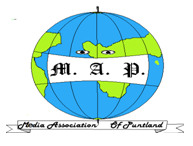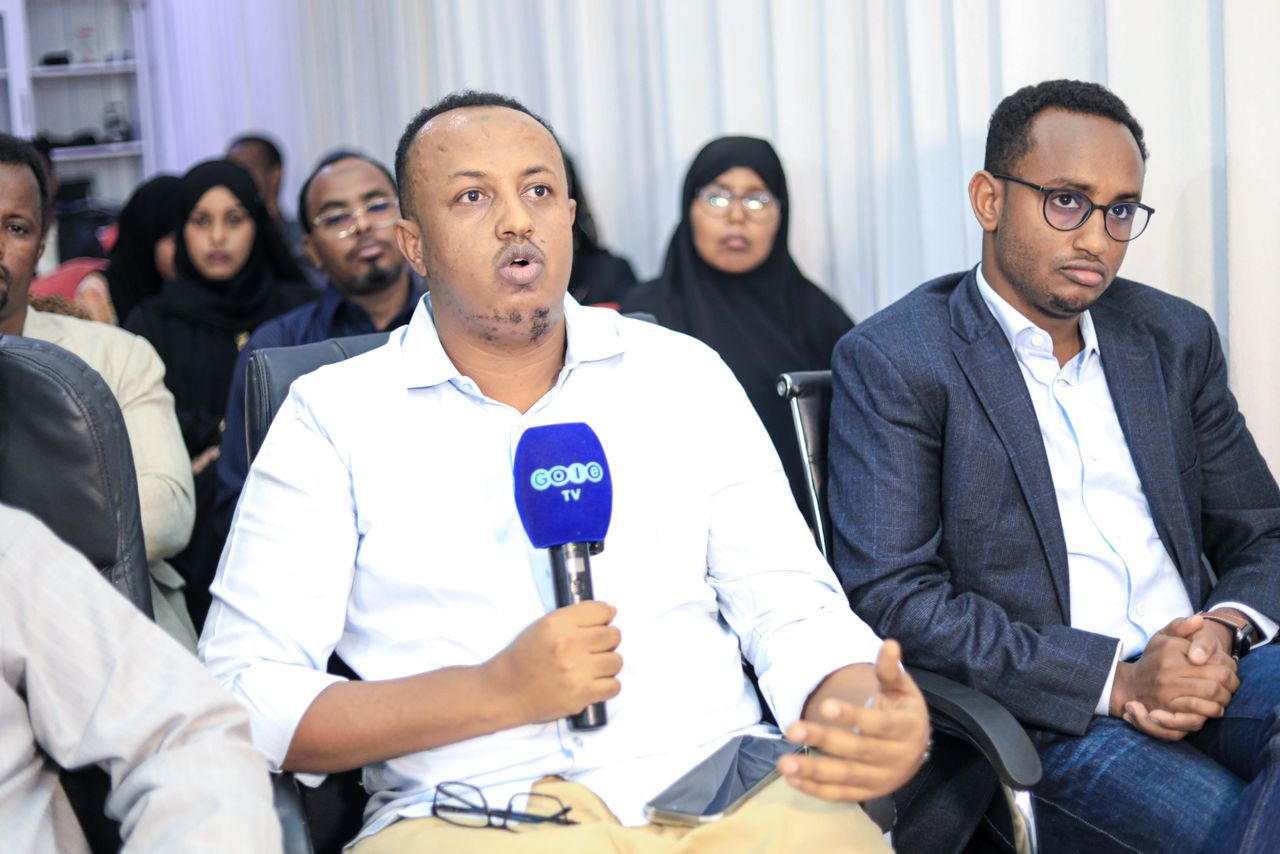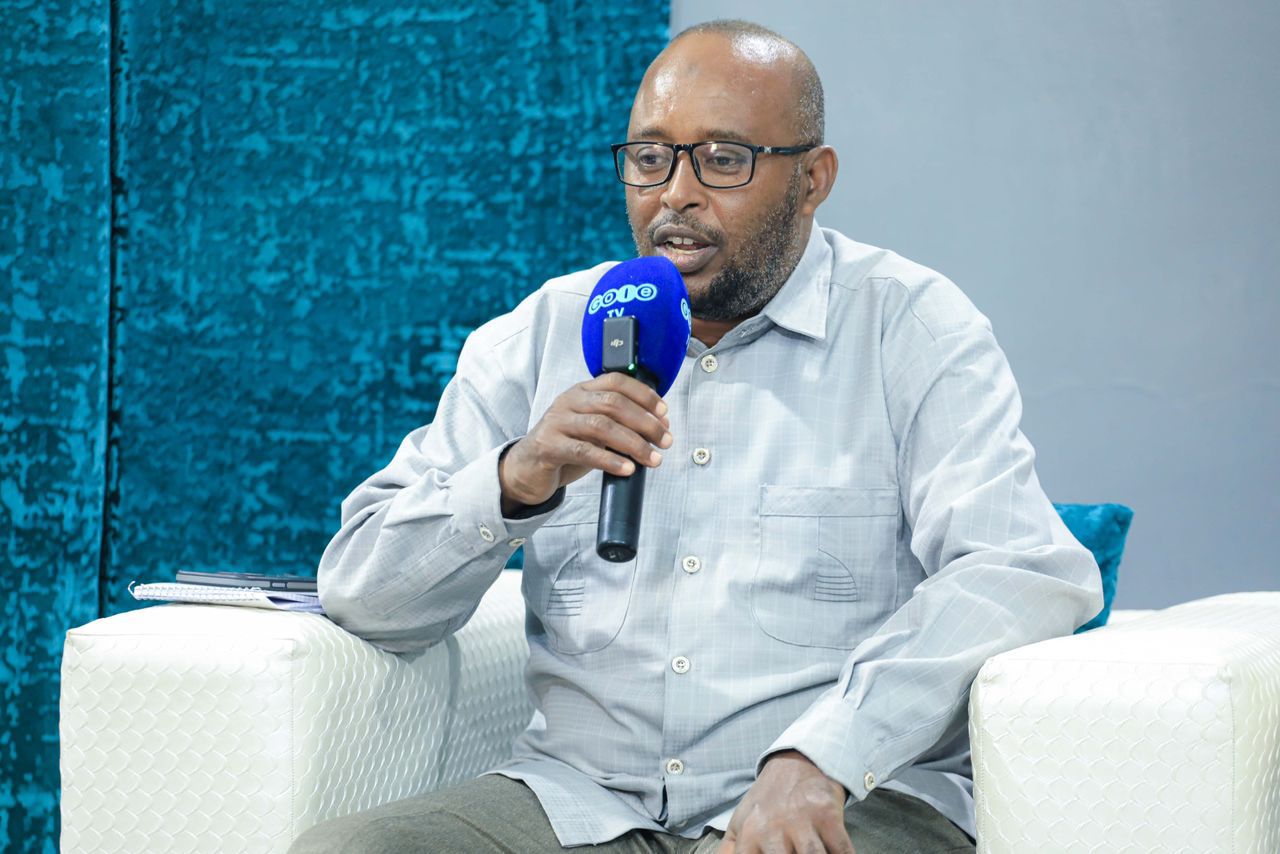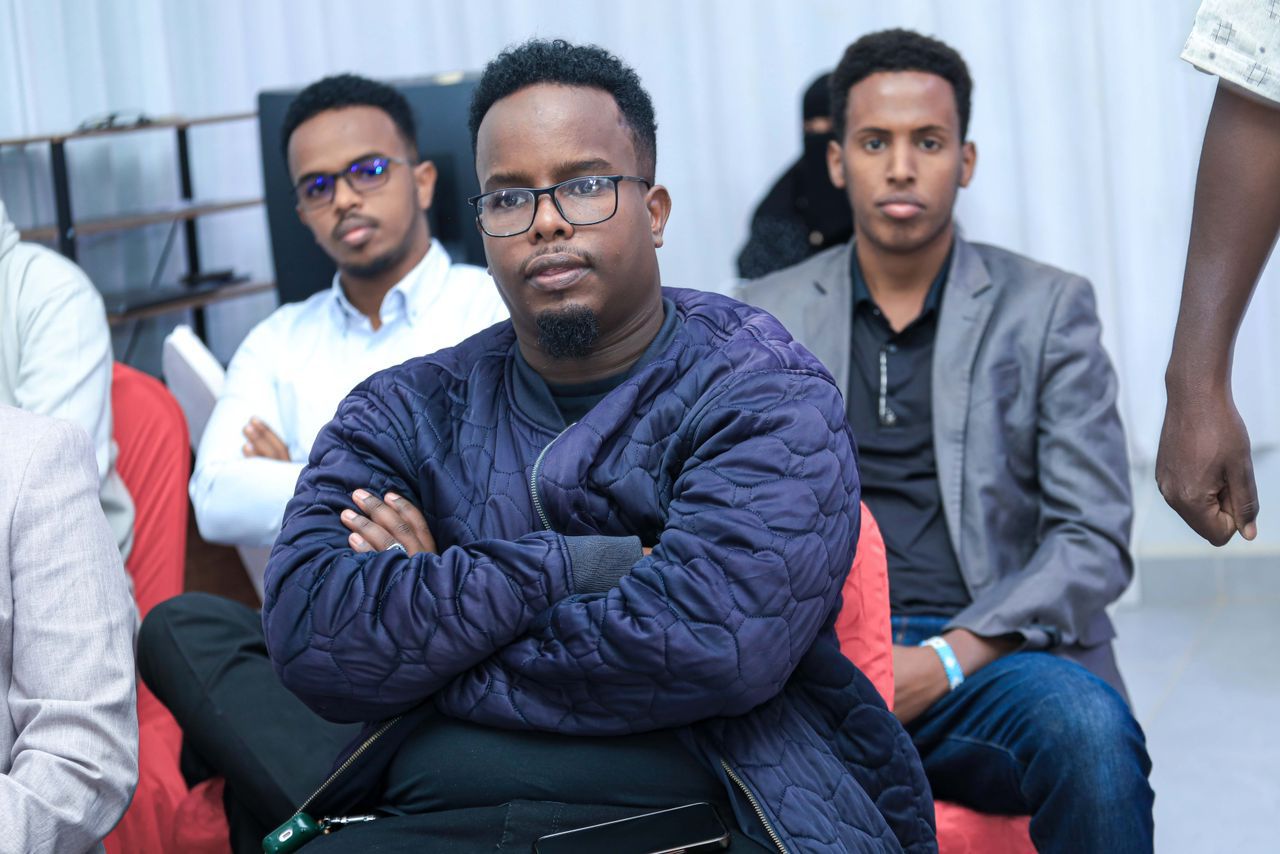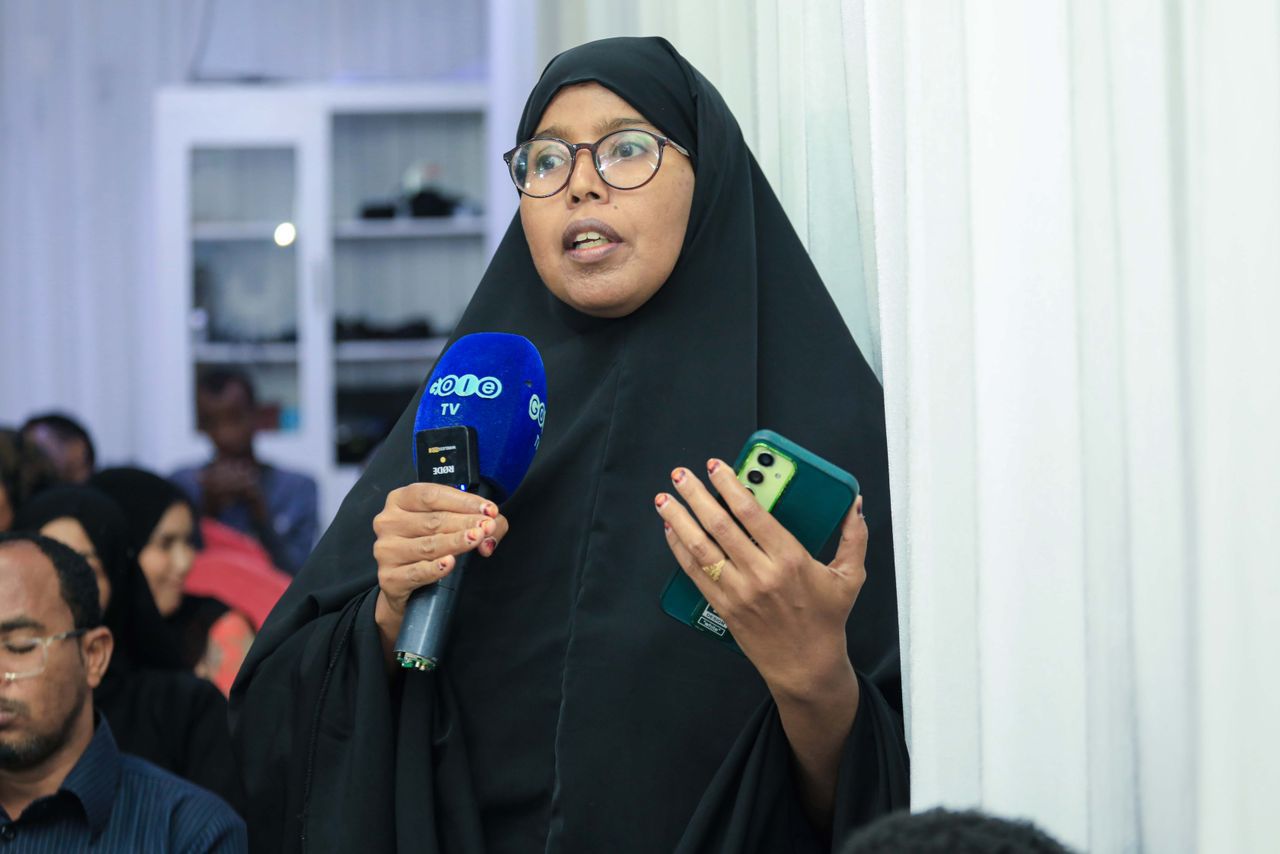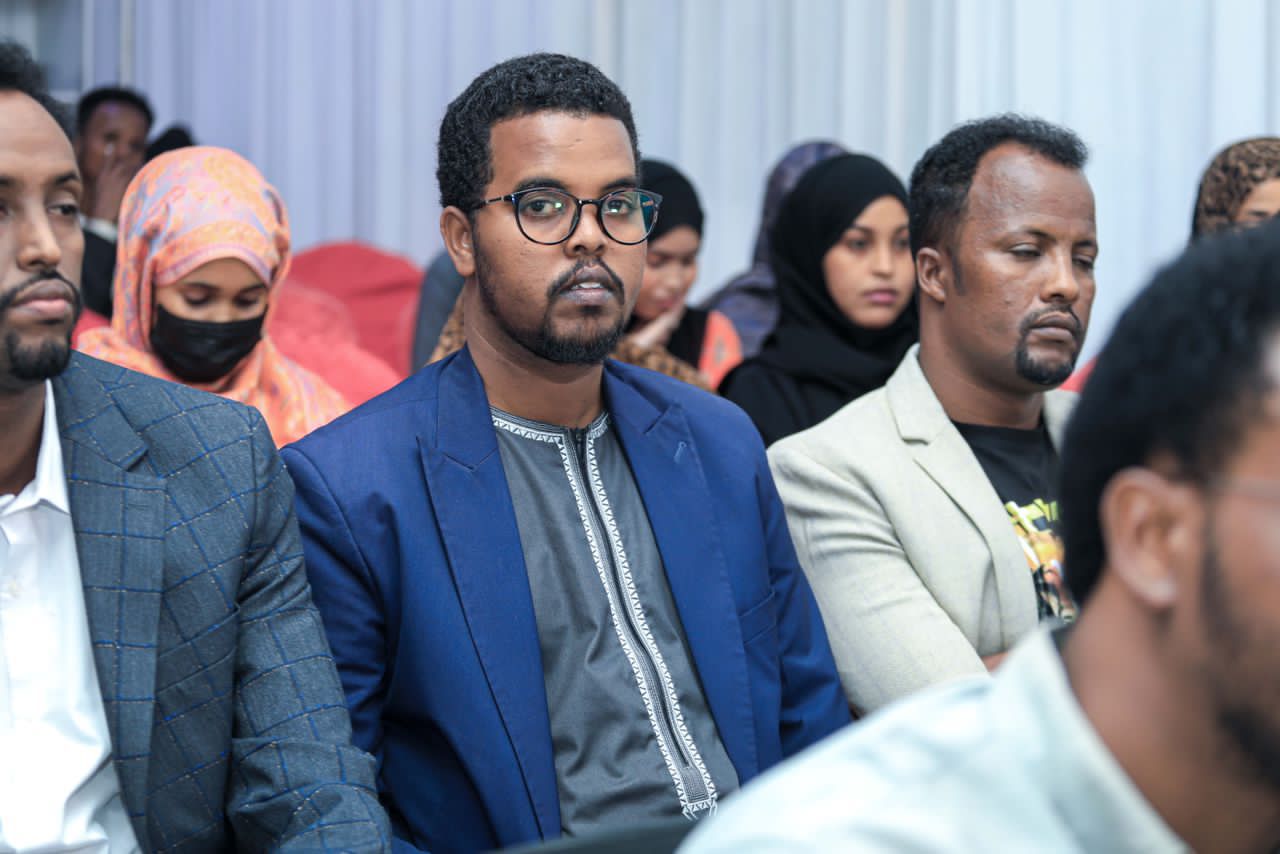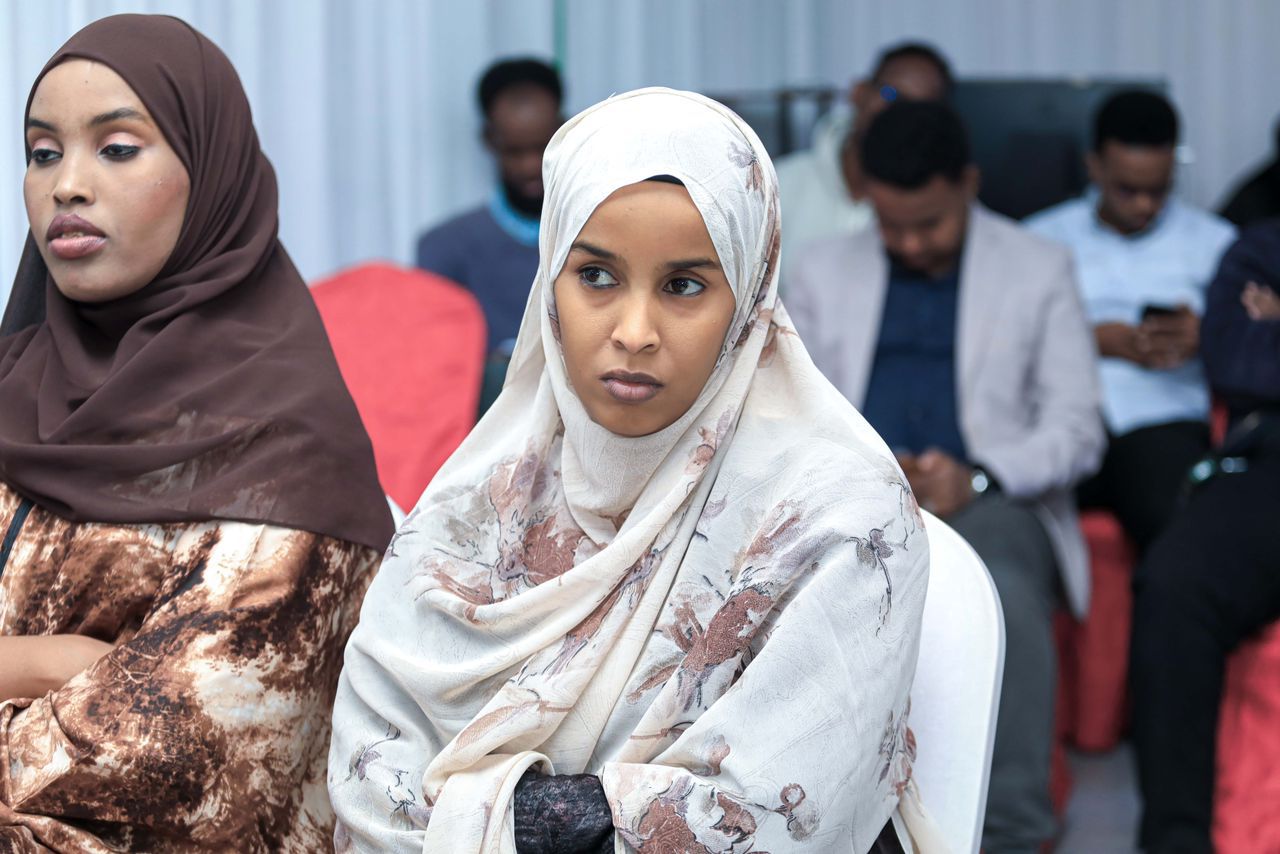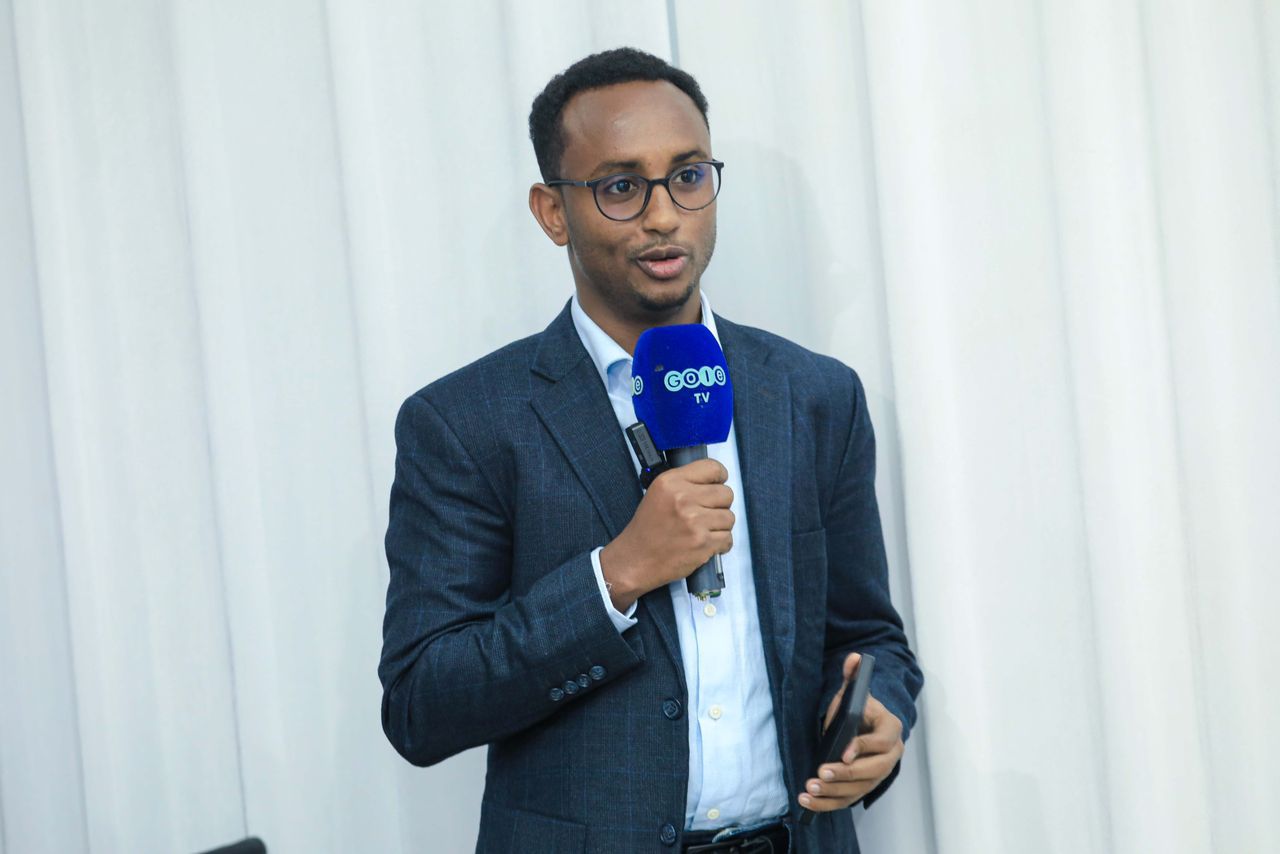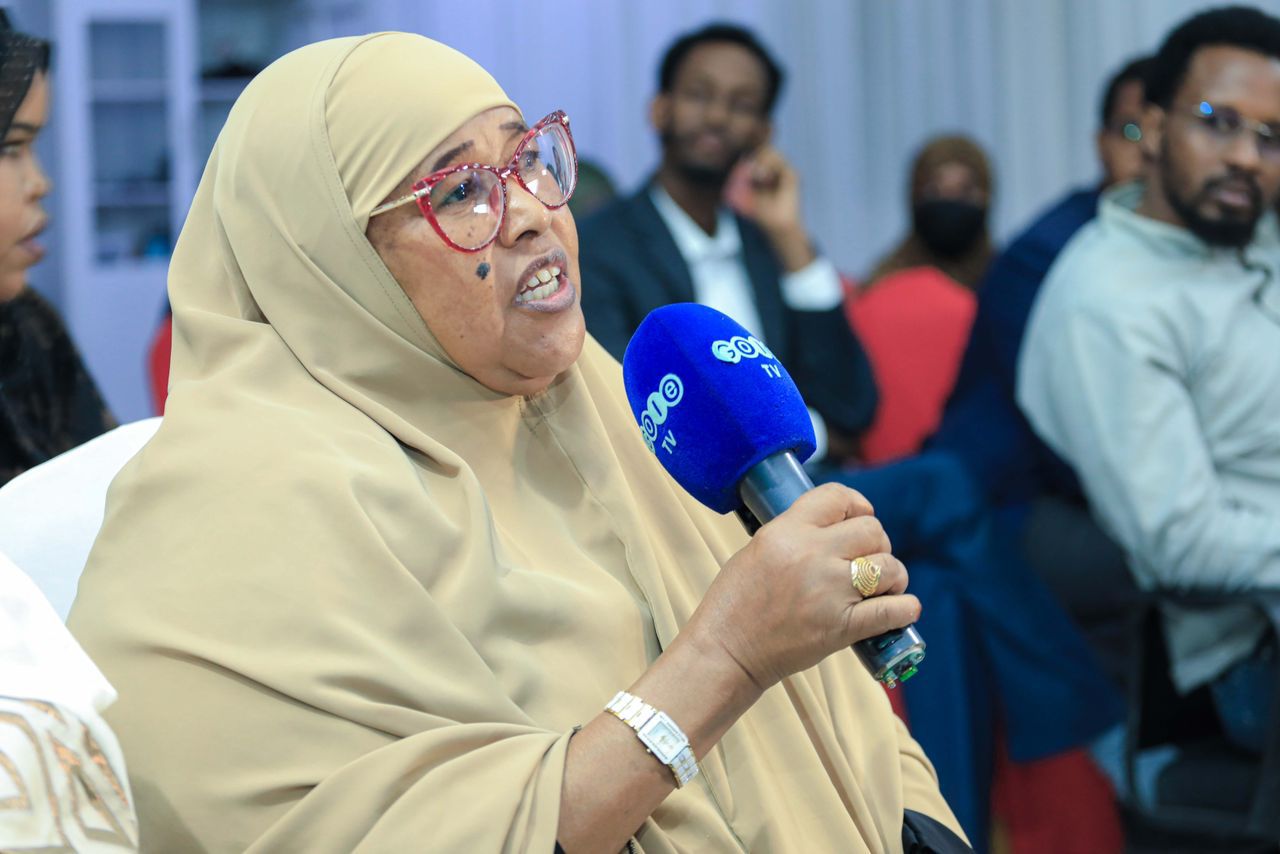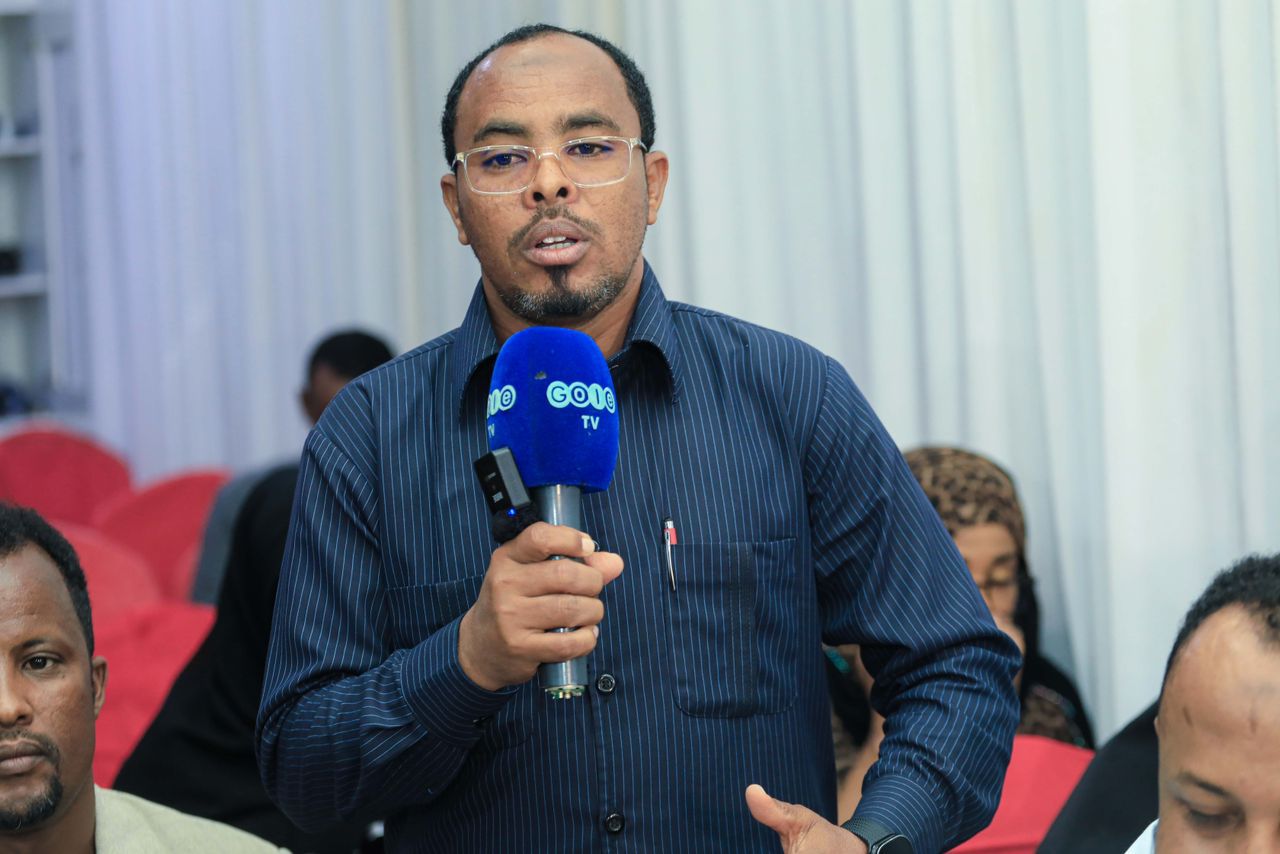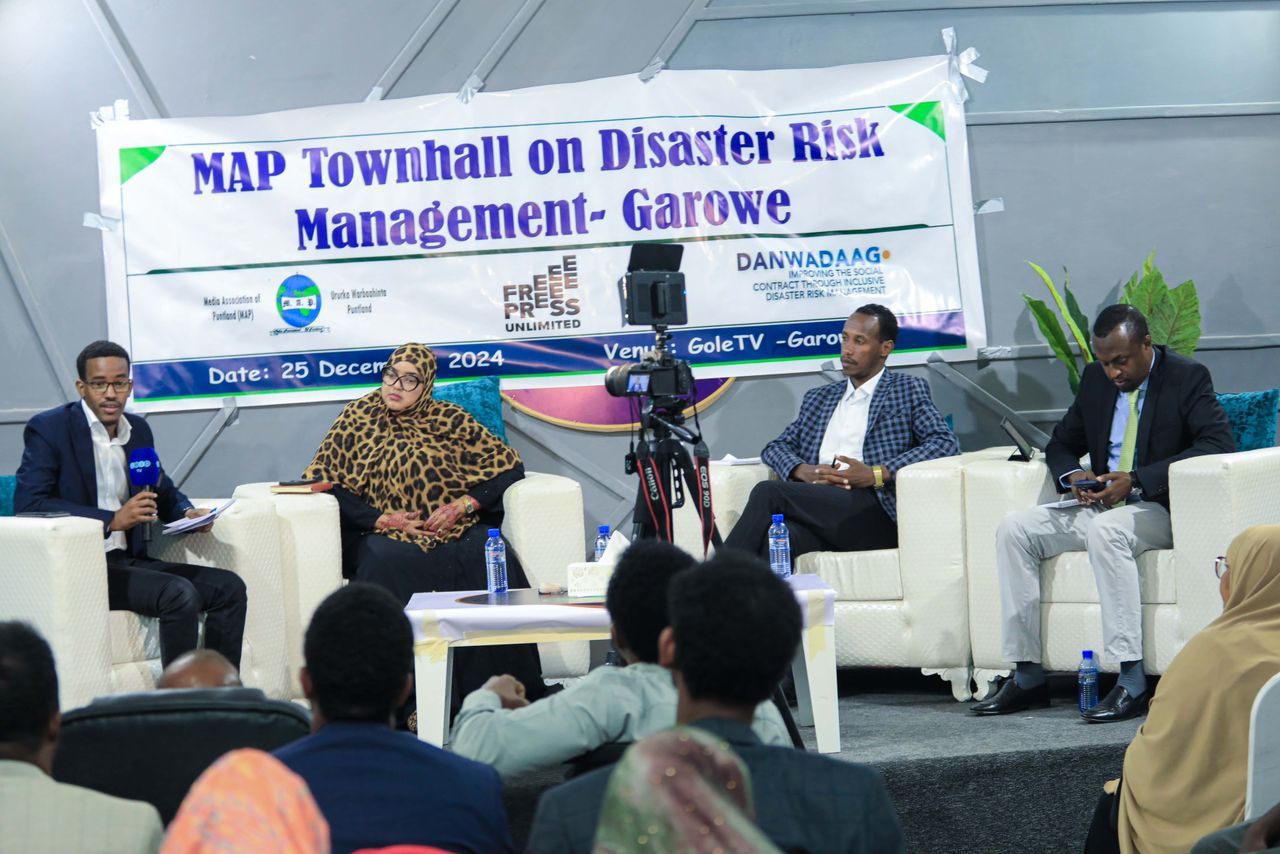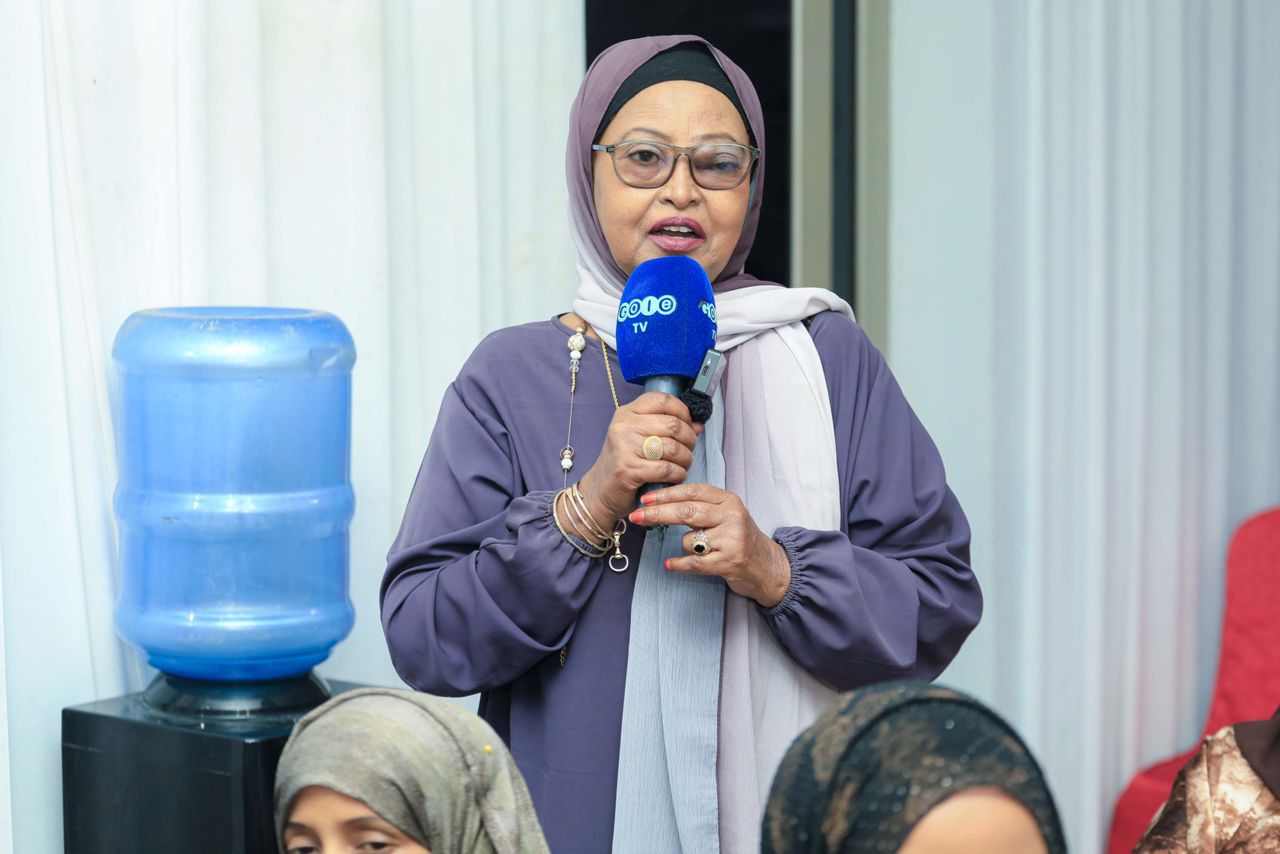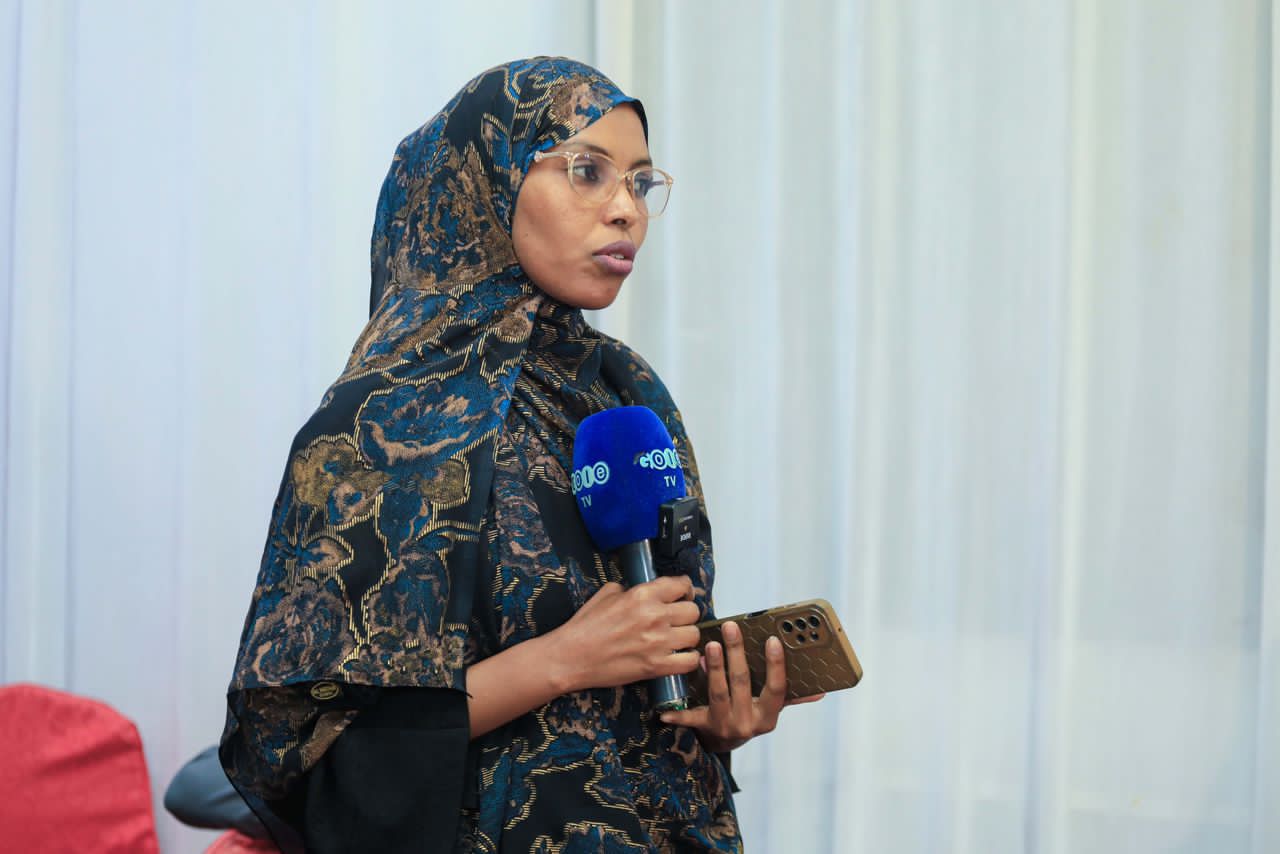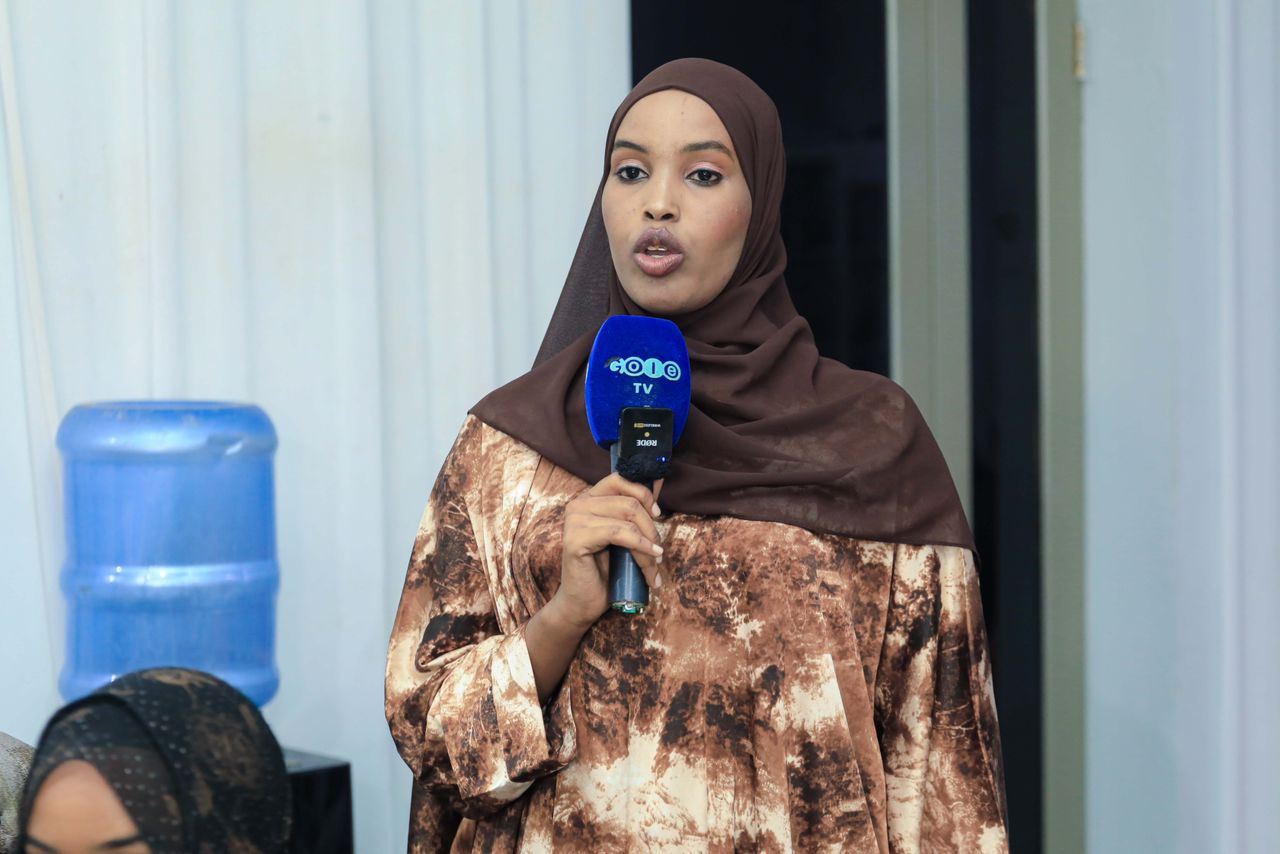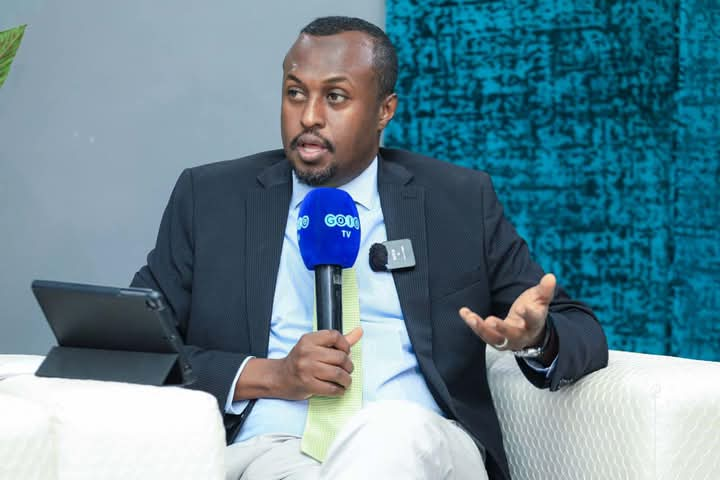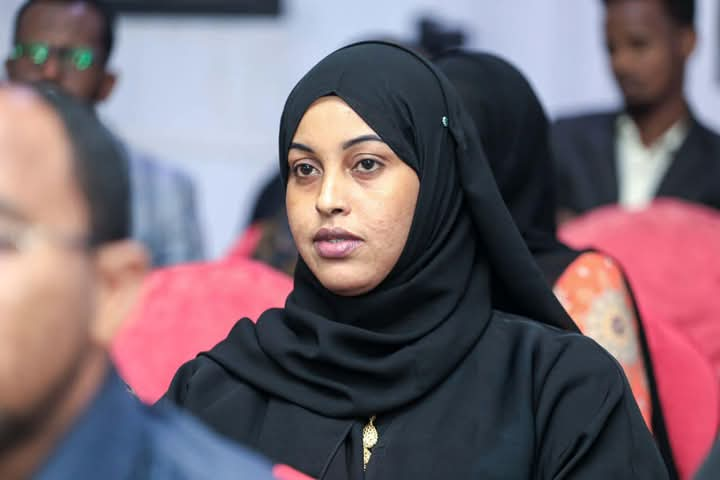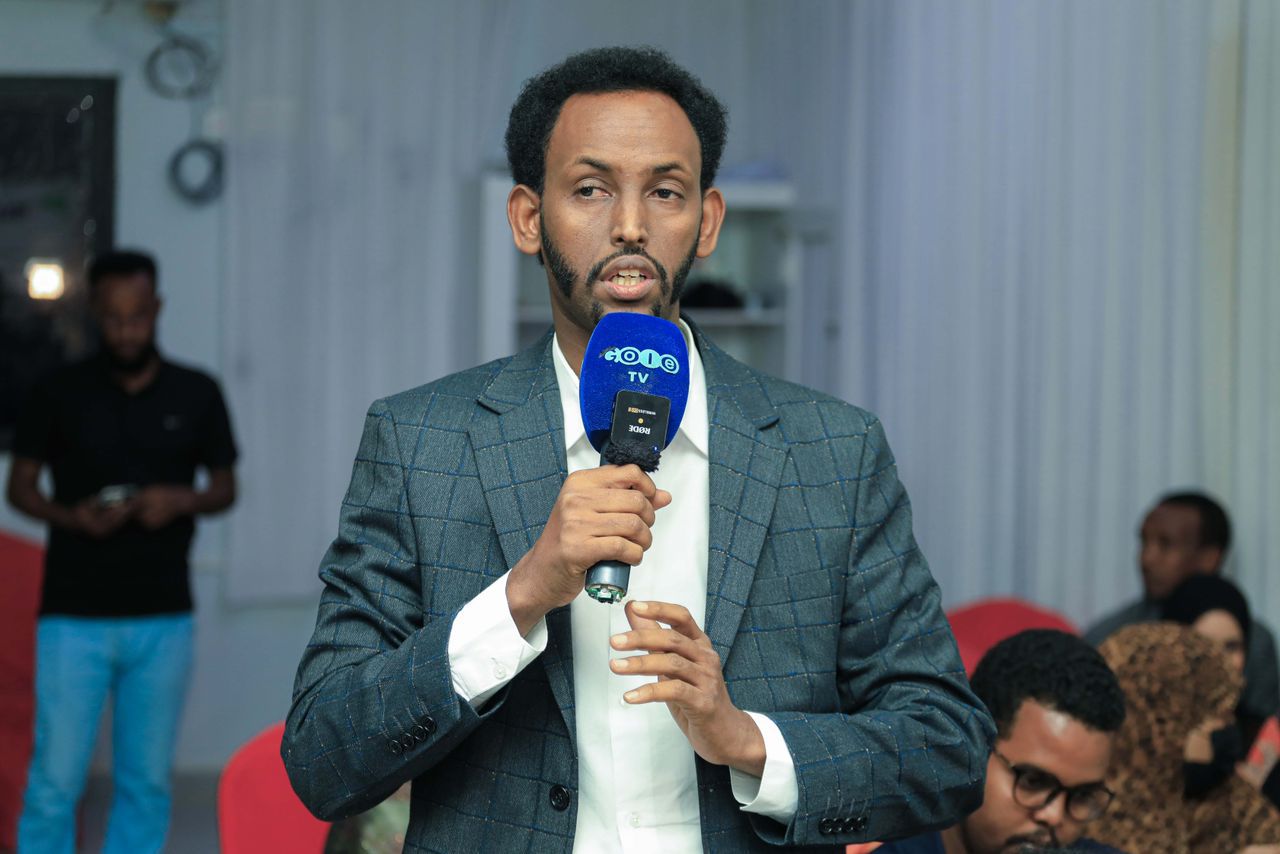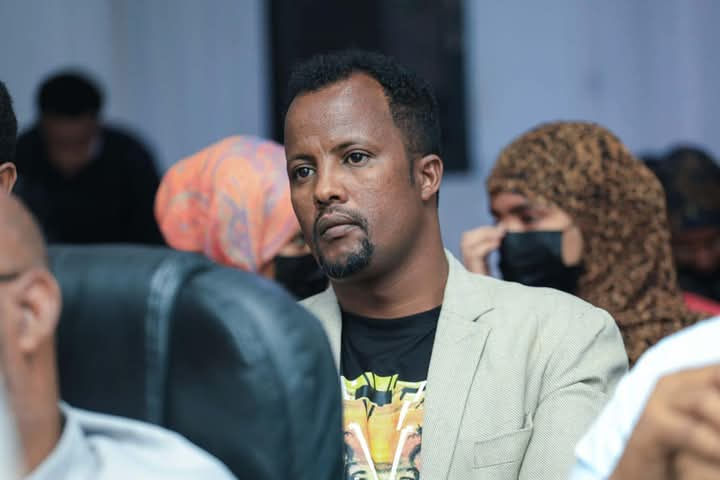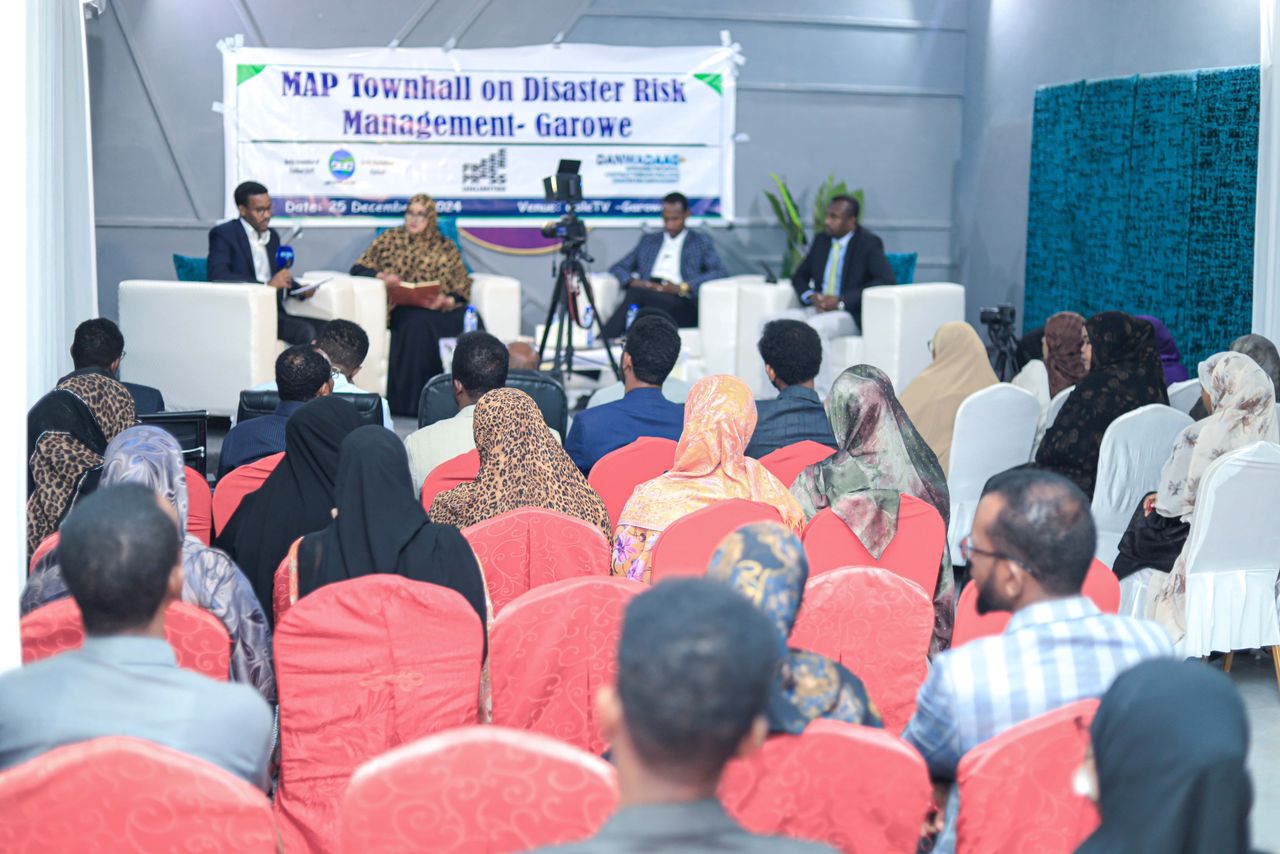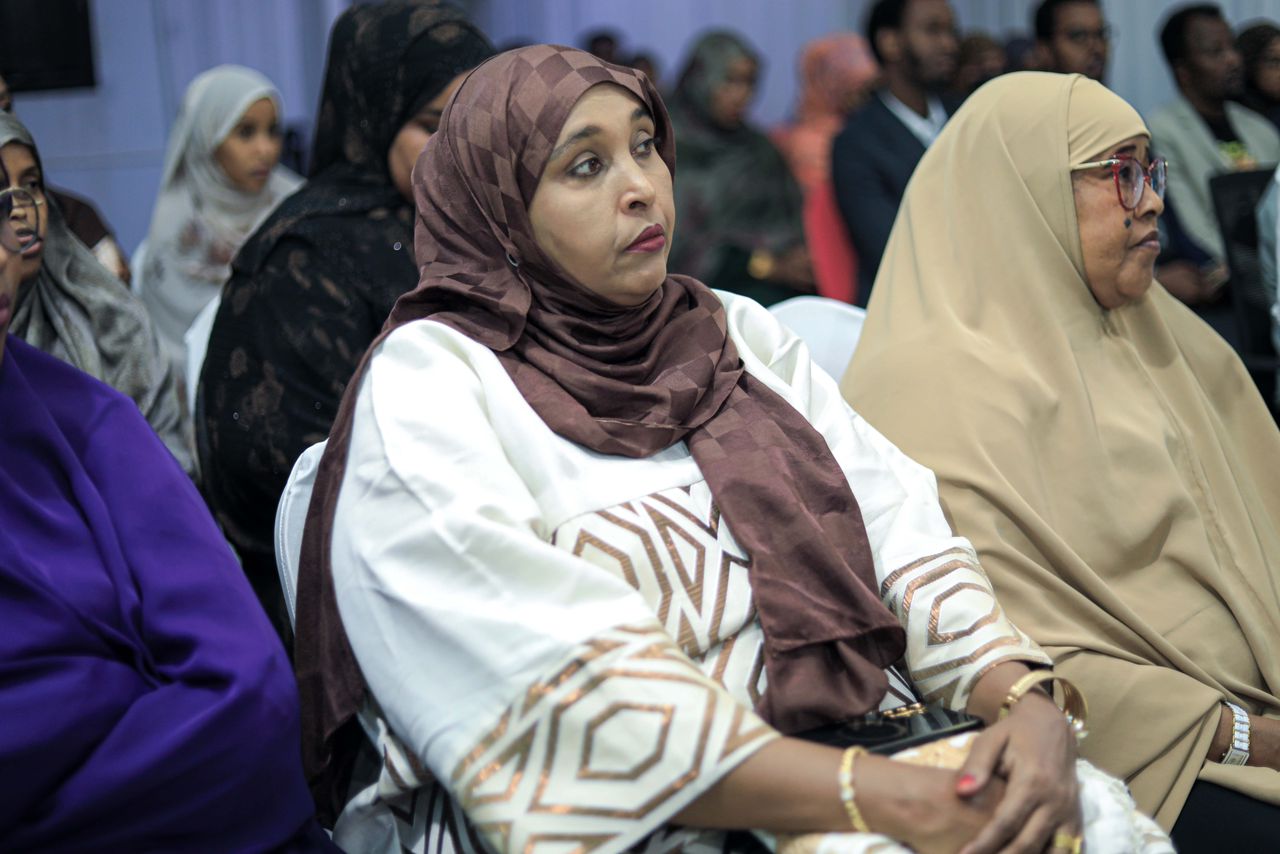On December 25, 2024, the Media Association of Puntland (MAP), in collaboration with Free Press Unlimited (FPU) and the Dutch Foreign Affairs-supported Danwadaag Initiative, successfully hosted the final Disaster Risk Management (DRM) Townhall of the year at the Gole TV premises in Garowe.
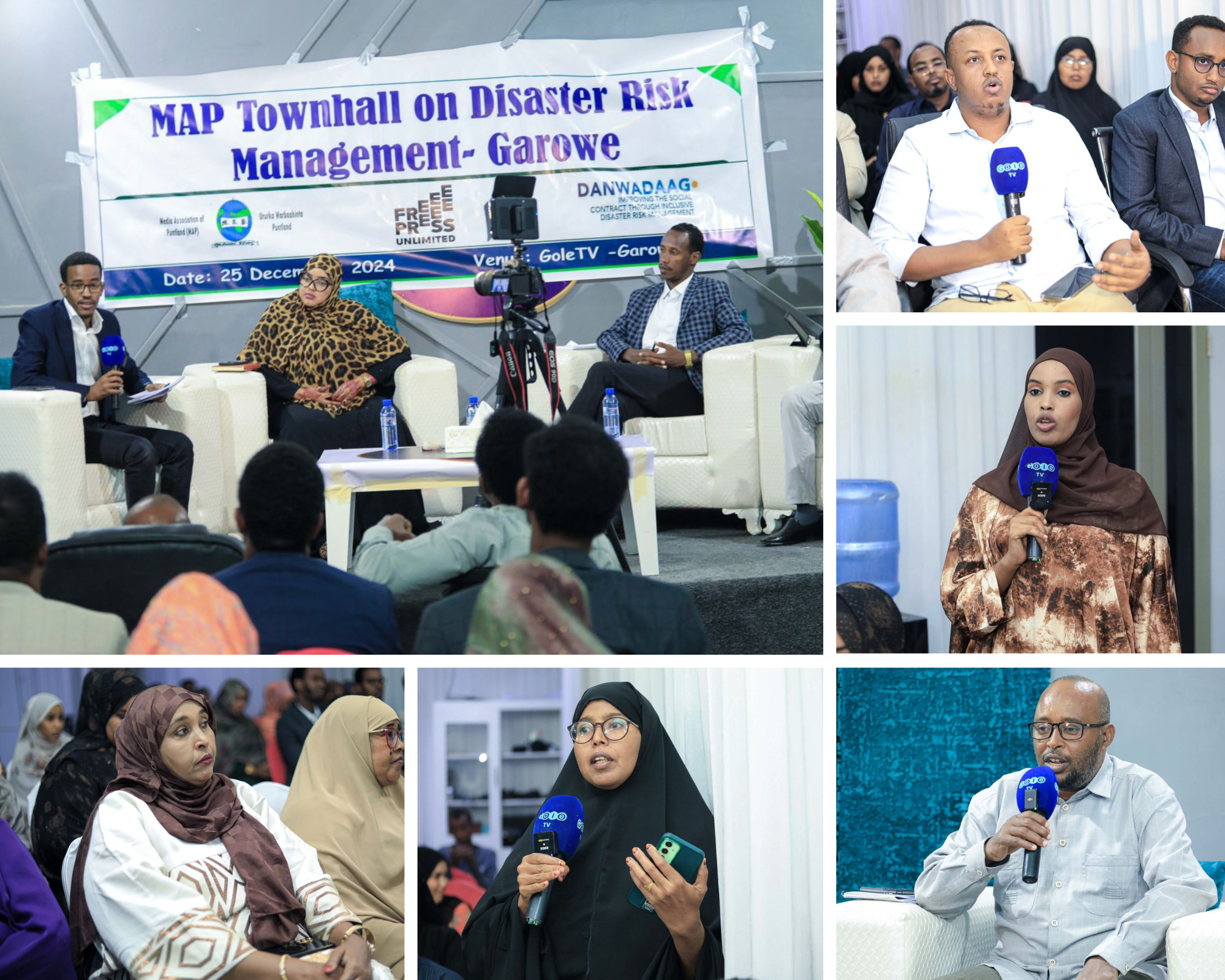
Photo Above: Umul khayr (female) event moderator with the panelist at the MAP townhall – December 25 2024 – Garowe
The event gathered a diverse audience, including Puntland state officials, DRM experts, civil society organizations (CSOs), environmental advocates, academics, media representatives, and community members. Esteemed panelists included Garowe Deputy Mayor Mohamed Hamari, PUNSAA Chair Abdirahman Abdirisaq, and senior representatives from the Ministry of Environment and Disaster Risk Management.
At the opening of the event, MAP Chair Mohamed Dahir highlighted the townhall’s objective, emphasizing MAP’s ongoing efforts to strengthen Puntland media’s capacity in DRM reporting and its role in fostering public engagement on critical issues. He underlined the importance of equipping media professionals to effectively contribute to addressing Puntland’s disaster and environmental challenges.
“Our people should be at the heart of every decision. Today, the media, CSOs, local government, and the public come together to unite efforts on disaster risk management. This townhall reflects inclusive governance, where every voice shapes a resilient and thriving Garowe. Together, we can build a safer future for all. Since 2022, MAP has organized townhall forums under the Danwadaag program, strengthening community engagement and improving local journalists’ capacity in DRM reporting.”
Under the theme of fostering resilience and sustainability, the townhall tackled some of the region’s most pressing issues through expert-led discussions and audience interaction. Key topics addressed included:
Flood Mitigation: Strategies for preventing and managing recurrent flooding and its devastating impacts on livelihoods and infrastructure.
Drought preparedness: developing robust measures to combat prolonged droughts and ensure resource sustainability.
Environmental Degradation: Tackling deforestation, soil erosion, and improper waste management to preserve Puntland’s fragile ecosystem.
Natural Fires: Strengthening safety measures at high-risk areas like petrol stations and residential zones.
The discussions were complemented by audience Q&A sessions and collaborative dialogues, culminating in actionable recommendations tailored to Puntland’s unique challenges. The event reaffirmed the critical role of public engagement and media-driven initiatives in promoting resilience and sustainability across the region.
Key Challenges Identified
Based on panel discussions and interactions with the audience, the following challenges in environmental conservation were summarized:
Limited Multi-Sectoral Involvement
The lack of engagement from business leaders and religious scholars—key influencers in Puntland society—limits resource mobilization and hampers community-driven environmental initiatives.
Insufficient Awareness and Education
Limited public understanding of environmental responsibilities results in low participation in conservation efforts, with climate change largely absent from everyday discourse.
Marine Pollution and Coastal Degradation
Toxic waste and garbage dumping into Puntland’s seas threaten marine biodiversity, fishing livelihoods, and public health, underscoring the urgent need for action.
Inadequate Reforestation Monitoring
Despite distributing 50,000 seedlings in the past year, a robust mechanism to track planting and growth is lacking.
Financial Constraints
Only 7% of the government budget is allocated to social services, including environmental conservation. Heavy reliance on inconsistent international aid further exacerbates funding challenges.
Proposed Solutions
To address these challenges, the Townhall proposed the following solutions:
Engaging Key Sectors
Actively involve businesses, religious leaders, and CSOs in collaborative environmental initiatives to harness their influence and resources.
Enhancing Public Awareness
Launch sustained public awareness campaigns and leverage media platforms to integrate environmental conservation and climate change discussions into daily conversations.
Strengthening Reforestation Efforts
Develop monitoring systems to track the planting and growth of distributed seedlings and expand annual tree-planting campaigns, such as Puntland Tree Week and World Environment Day.
Increasing Financial Investments
Advocate for increased government budget allocations for environmental programs and explore local revenue generation and private-sector partnerships to reduce reliance on external aid.
Addressing Marine Pollution
Enforce stricter anti-dumping policies and mobilize local communities and fishing associations for organized coastal clean-up drives.
“Events like this are vital for shaping our collective response to the pressing challenges we face. Together, we can build a more resilient and sustainable future for Puntland,” he stated.
Deputy Mayor Mohamed Hamari, who attended the Townhall as a guest of honor, commended the Media Association of Puntland (MAP) for organizing what he described as a crucial and impactful event. He expressed hope that the insights and outcomes from the discussions would serve as a foundation for future initiatives aimed at strengthening disaster risk management and promoting sustainable environmental practices in Puntland.
A Unified Call to Action
The Townhall concluded with a powerful call to action, urging all sectors of society to unite in addressing Puntland’s environmental challenges. MAP reaffirmed its commitment to empowering media professionals as vital agents of change, driving public awareness and fostering collaborative solutions for a sustainable and resilient Puntland.
END
